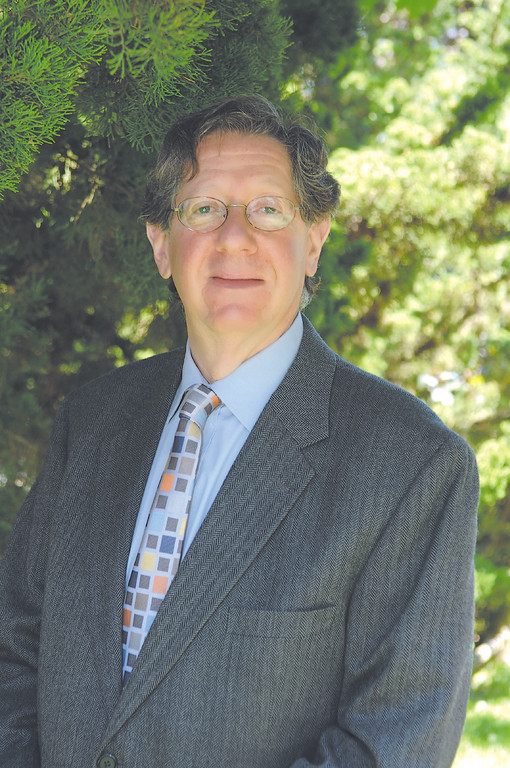Considering Un’taneh Tokef as we observe Rosh Hashanah
With the observance of Rosh Hashanah now upon us, this week’s essay will be devoted to several observations of this most beloved and respected holidays of our faith.
Whereas in other faiths and cultures the welcoming of a new year is marked with revelry and unbridled joy, in Judaism the mood is solemn, and the observance is sober in diet as well as liturgical tone.
Rabbi Daniel Yaakov Travis in his book “Days of Majesty,” teaches us that “a Jew should be in a state of constant awe of the overwhelming magnificence of Divine Majesty.”
“Only by suffering a momentary lapse in his awareness of G-d’s all-encompassing Presence can one slip onto the path of transgression,” Travis writes. “Thus, even if unintentional, every sin carries with it some element of rebellion against His Kingship. Yet if one has strayed, there is always a way to return: by recognizing G-d’s Sovereignty anew.”
Thus, from this most valued teaching do we learn a basic and fundamental element of teshuva (repentence).
Dr. Erica Brown, in her essay “G-d as the Ultimate Writer” in “Who By Fire, Who By Water,” an anthology on the Un’taneh Tokef [Jewish Lights, 2010] writes the following:
“G-d is a writer, the ultimate writer. And once our fates are written, there is something about the ink that terrifies us: What if it is really permanent? The High Holy Day liturgy confirms this fear.
“Un’taneh Tokef introduces the idea of G-d as a writer, but the image of G-d as a writer of man’s fate as written and recorded is not only reserved for our machzorim. It is present in any number of biblical verses:
“Forgive their sin, but if not, erase me from the record which you have written.” [Exodus 32:32]
“Let them be blotted out of the book of the living; let them not be enrolled among the righteous.” [Psalm 69:29]
Dr. Brown makes further note of this element of writing in the motif of our liturgy by citing the following:
“Words build worlds. G-d built the world with words of creation and our Jewish world with words of Torah — then made us coauthors and editors in them both. We do more than walk beneath G-d’s quill awaiting evaluation; we write our own destinies, knowing that G-d will do the fact-checking.”
Dr. Marc Brettler, Dora Golding Professor of Biblical Studies at Brandeis University, in this same volume, in his essay, “A Biblical Per-spective,” provides this heartfelt sentiment:
“I find Un’taneh Tokef deeply moving. Its words scare me, especially “who will live and who will die.” Its tunes, too, are haunting — both the traditional melody and the newer one introduced in 1990 by Yair Rosenblum to commemorate those killed in the Yom Kippur War from Kibbutz Beit Hashita. I appreciate why it has developed into such an important prayer and why a myth developed to suggest its divine origin.” Brettler has much more to say and his opinions and other works merit further study.
Finally, I wish to briefly cite the essay in this volume written by Rabbi Daniel Landes, the Rosh HaYeshivah of Jerusalem’s Pardes Institute, entitled, “The Four Holinesses of Un’taneh Tokef.” Consider this brief outline as the basis for your further study of this work of holiness.
These four holinesses are:
Kiddush Hashem: Holiness of Martyrdom
K’dushat Hayom: Holiness of the Day
K’dushat Hashem: Holiness of G-d
K’dushat Hachayim: Holiness of life
I leave it to you to further explore Rabbi Landes’ other teachings and come to terms with the essence of what constitutes the core meaning of the Un’taneh Tokef, repentance, and of why it has had such a deep impact on Jews of all belief modes through the ages.
Also, if you have the chance, check out the commentary on the Un’taneh Tokef in the High Holiday Birnbaum Machazor [Hebrew Publishing Co.] which goes into detail on the saga of Rav Amnon, author of this piyut (liturgical poem). The Birnbaum Machazor, and year round siddur as well, should continue to be on the bookshelf of every Jewish household. The footnoting and background material found therein are invaluable to all of us, no matter what denomination.
Another work written five years ago by Joe Bobker, entitled, “From Fasting to Feasting” [Gefen Publishing House], will surely place a cautious smile upon your face.
I direct you to the first section of this work that is devoted to the High Holiday season. At the heart of this section he devotes almost five pages to Un’taneh Tokef with a much different take from the previously cited authors. Nevertheless, Bobker ends with the following cautionary observation:
“Individually and collectively, on Rosh Hashanah we face our destiny. As we begin the journey, it is instructive that we return to those deadly Un’taneh Tokef words. Why? Because a second careful reading reveals that they do not end in thundering threats, interminable curses, and endless intimidations — but with high hopes and even higher promises for a better future.”
I now leave you with a spiritual smile, with the following quote, also from the pen of Joe Bobker, from his essay, “Shofar So Good”: “Every year the shofar reminds us that faith sees beyond fate. Representing the first day of the rest of our lives, Rosh Hashanah is a magnetic call to remember where we come from, and where we are headed, down a path filled with a deep passion for repentance, prayers and good deeds.”

 80.0°,
Partly Cloudy
80.0°,
Partly Cloudy 




